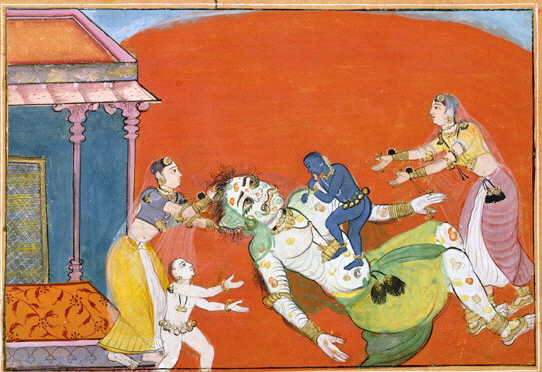Introduction Most people believe they struggle with decision-making because they lack intelligence. In reality, the problem is rarely about intelligence. It is about unfinished thinking. We often confuse quick reactions with thoughtful reasoning and assume that speed equals clarity. In truth, reacting is easy. Thinking well takes structure. Day after day, we face similar triggers, follow the same mental shortcuts, and arrive at the same predictable outcomes. We mix facts with emotions, risks with assumptions, and opinions with fear—all at once—and label it “thinking.” This mental clutter creates confusion, not clarity. What if the solution was not about being smarter, but about using a better system to organize our thoughts? This is where Edward de Bono’s Six Thinking Hats offer a powerful shift. Instead of letting thoughts collide randomly, this framework helps you think in sequence. Each “hat” represents a specific mode of thinking, allowing clarity to emerge step by step. When ...
 In Hindi, we say " Bura Na Mano Holi Hai" while celebrating Holi. This means please do not feel sad because it's Holi". It's an Indian version of La Tomatina with the only difference that Indians use colors instead of crushed tomatoes. Obviously, Holi is a time to become exuberant but we must also learn some life lessons from Holi. This a time when caste, creed, and color doesn't divide people. People from different walks of life enjoy Holi together and this is a time when enemies become friends.
In Hindi, we say " Bura Na Mano Holi Hai" while celebrating Holi. This means please do not feel sad because it's Holi". It's an Indian version of La Tomatina with the only difference that Indians use colors instead of crushed tomatoes. Obviously, Holi is a time to become exuberant but we must also learn some life lessons from Holi. This a time when caste, creed, and color doesn't divide people. People from different walks of life enjoy Holi together and this is a time when enemies become friends. Lesson 1:
Never Boast of your resources: Hiranyakashyap was a king in ancient India who was just like a demon. He wants to take revenge for his brother's death from Lord Vishnu. Once Hiranyakashyap performed a prayer for several years. In the end, he was granted a boon and because of which he started considering himself God and ordered citizens to start worshiping him. He used to punish anyone who does not worship him. He had a son whose name was Prahlad. Prahlad was a devotee of Lord Vishnu and never worshipped his father. Hiranyakashyap was very angry towards the behavior of his son and hence he wanted to kill his own son. Hiranyakashyap approached his sister Holika who had a special blanket due to which she cannot be burnt in a fire. Holika was overconfident and agreed to sit with his nephew. When Holika sat on the pyre with his nephew, the blanket blown up by the wind and protected his nephew. The Holika burnt into the ashes because of her overconfidence. Life is just like this, we never know when our overconfidence will harm us hence we must never boast of resources we have with us.
Lesson 2:
Always keep final Goal in your mind: The Story goes like that when Sati burnt herself as her father Daksh disgraced Shiva (Husband of Sati), Lord Shiva became extremely sad and started doing penance in the forest. He renounced his duties and meditated deeply. Parvati (daughter of mountains) also started meditation for getting the Shiva as her husband. As Shiva renounced his duties, many complications generated in the world and demigods were afraid due to this problem. Demigods then approached the Kamadev (God of Love) to resolve the problem. Kamadev knew that this will be harmful to him but still he accepted to shoot his love arrow towards Lord Shiva to save the world. This made Shiva very angry and he burnt Kaamdev by his third eye. However, the love arrow had the desired effect and Lord Shiva married Parvati.
After some time Kamadeva's wife Rati approached Lord Shiva to revive her husband. Lord Shiva happily accepted the request and Kamadev was revived. Similarly, in our day to day dealings, we used to face challenges in our life but we must face these challenges head-on and must keep our final goal in our mind.
Lesson 3:
Never think bad for others: Legend says that there was an ogress with a name of Putana. Lord Krsna's evil uncle approached Putna to kill baby Krsna by feeding him venomous milk. Putana changed her get up and reached Krsna's home as a very simple and pious woman. She treacherously started feeding milk to Krsna from her poisoned breasts. On the other hand, Lord Krsna started sucking the blood of Putana which revealed the monster behind the lady. Lord Krsna laid her to death. By this story, we can easily understand that if we do any wicked activity against anyone then there are maximum chances that we'll get what we had sown.
These stories may seem a work of fiction but they have a great message for us. We must accept all these lessons and inculcate these lessons in our day to day dealings.
I wish you and your family a very happy and blissful Holi.
Please follow us for exclusive content:
Facebook: https://www.facebook.com/motivationdrive01/
Instagram: http://www.instagram.com/motivation_drive01
TikTok: https://vm.tiktok.com/GkNRUj/
LinkedIn: https://www.linkedin.com/in/%F0%9F%8E%AF-raja-kumar-8ba50372/?originalSubdomain=in
YouTube: https://www.youtube.com/channel/UCSrGHVFiwydjmWFqMGytxmg
Our Website: https://www.motivationdrive.com/?m=1 #credits of pictures to the respective owners



Comments
Post a Comment
Please do not add any spam link in the comment box